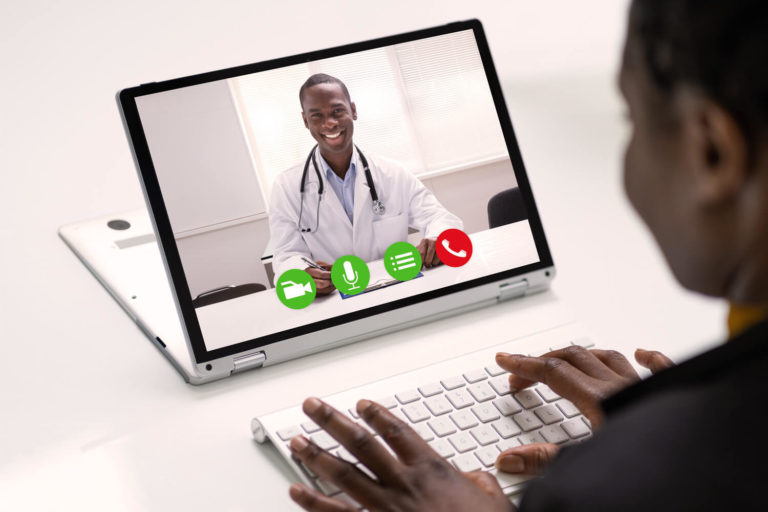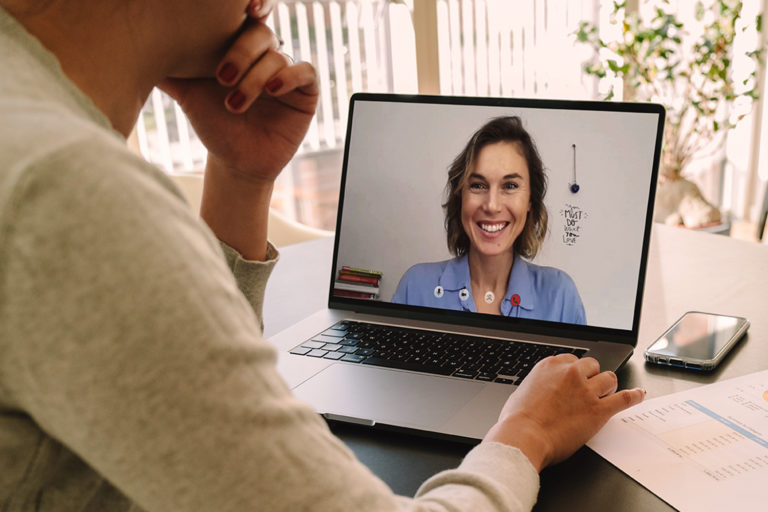There’s no question about it: healthcare providers who want to provide their patients with a truly holistic approach to health and wellness are turning to integrated healthcare.
Integrated healthcare brings together a variety of services, including primary care, mental health, and behavioral health services, to ensure optimal health outcomes for every patient.
Many studies have shown the benefits of integrated team-based care, including higher quality care, lower rates of acute care services, and less expensive healthcare services.
“Integration is a key to strengthening healthcare in this country and ensuring every community — whether rural, urban or suburban — has access to affordable, evidence-based care,” American Hospital Association Board Chair Rod Hockman, M.D., told the U.S. Senate Subcommittee on Competition Policy, Antitrust, and Consumer Rights in May 2021.
Integrated healthcare is advantageous for every single venue where patient services are delivered, especially home healthcare. That is because home healthcare often includes multiple services delivered by a variety of skilled healthcare professionals such as physical and occupational therapists, nurses, pharmacists, speech-language therapists, and even social service providers.
To deliver a customized experience to each patient, you need easy-to-use tools that allow you to coordinate your team, create customized programs that target your team’s KPIs, ensure data security, and centralize conversations.
Let’s dive in and find out why Welkin is the premier provider for integrated home healthcare solutions.
Team-First Care Coordination
Welkin’s team-first care coordination allows clinical directors to assign an appropriate team member to address patient needs at every step of the journey, eliminating the possibility of people falling through the cracks. The result? You can maximize your most precious resource — your team’s time.
Delivering the right care at the right time is one of the most effective ways to ensure patients stay engaged and invested, improving their satisfaction and health outcomes.
According to a study published in the Harvard Business Review, teams that implemented effective healthcare patient engagement solutions saw a 96% medication compliance rate. The same patients who suffered from chronic conditions visited emergency rooms less frequently or not at all, saving money and potentially risky interventions.
In addition, the National Institutes of Health found that effective, automated patient engagement solutions improve patient-provider communication.
With Welkin’s Team-First Care, team members can provide a curated experience to every patient they serve for an organized workflow and patients who are invested in their health and wellness.
In addition, Welkin’s Team-First Care gives care providers more insight into remote patient monitoring (RPM) activities, which is especially relevant when it comes to home healthcare.
This digital technology allows care providers to collect secure health data from patients via the internet, transmitting it to healthcare providers so they can make better care recommendations. When you make it more convenient for patients to provide information or ask questions from their own homes, they are more likely to stay in touch with their providers.
RPM gives clinicians important data about their patients when they aren’t visiting in person. This allows care coordinators to determine which patient needs a home visit, helping to improve efficiencies and conserve resources. By sending a message to the care team when an adverse event occurs, team members are able to respond quickly.
Automated workflows
Patient Relationship Management platforms are especially advantageous when it comes to delivering care to patients in their own homes. Welkin’s automated workflow solutions allow care providers to lessen burden and burnout so your team can spend more time delivering compassionate, holistic care.
Workflow inefficiencies can cause frustrations for patients. For example, if a patient is asked the same questions repeatedly (either by the same provider or by different clinicians), they may wonder if their healthcare professionals are paying attention to their needs or are even capable of fulfilling them, causing them to lose confidence in their providers.
Here’s how our platform simplifies workflow so care teams are more efficient:
- A profile identifies the patient’s communication and care preferences, and the patient is assigned a provider.
- Assessment forms identify the patient’s problems, risks, and goals.
- Each patient is assigned a care team, their first appointment is scheduled, and the automated reminder system is activated.
- Team members begin regular communication with the patient, set up task reminders, plan automated follow-ups, and track outcomes.
- The patient receives notifications if there are gaps in their care or if they aren’t adhering to their program and the plan is adjusted as needed.
- A final assessment evaluates the progress; maintenance appointments are scheduled as needed.
While electronic health records automate some steps in the care plan, poor design and improper use can cause errors that risk patient safety or decrease the quality of care. For example, clinicians can make mistakes when entering notes or medication information. “Cut and paste” functions can lead to inaccurate data entry, or providers can inadvertently delete notes from previous visits.
Welkin’s platform not only helps avoid these pitfalls, but it also allows care teams to deliver services more efficiently.
Omni-Channel Patient Communication
Research from the Brookings Institute has shown that patient engagement improves health outcomes, lowers costs, and allows them to become more active participants in their care. But to strengthen patient-provider relationships, clinicians must overcome any barriers to timely communication.
The best way to do that? Through streamlined communication. Centralized conversations have been shown to improve certain patient outcomes, reduce costs, and enhance patient satisfaction. The ubiquity of mobile devices has made staying in touch easier than ever before.
When it comes to home healthcare, frequent communication through a variety of channels is the best way to stay connected. Welkin allows providers to organize communication from all care team members in one place and stay in touch with patients using a HIPAA-compliant method of the patient’s choice — whether it be email, phone calls, telehealth, text messages, chat, fax, or any combination of these. As a care coordinator, this gives you peace of mind that your team members will always know when a patient reaches out, ensuring they receive the responsive, timely service that they deserve.
In addition, centralized conversations provide team members with one convenient place to access a full profile of each patient including diagnosis, assessments, care plan, and metrics to track vitals and lab results.
Codeless care program design
Welkin’s codeless care program allows care managers to create custom dashboards that target their team’s key performance indicators. Welkin’s system saves your team time because it doesn’t require you to employ developers, engineers, or IT specialists to code or deliver reports. The user-friendly drag-and-drop layout is adaptable to suit the needs of every home healthcare organization.
Built-in integrations
Welkin’s easy, out-of-the-box, built-in integrations allow you to customize your solutions. Leading applications are already built-in, while a well-documented API allows you to adapt your platform as your care team grows.
Welkin’s built-in integrations include the following capabilities:
- HIPAA-complaint Zoom for Healthcare
- MedRec to validate medications with Medi-Span directly within Welkin
- eRx, which leverages DrFirst to make it easier to prescribe drugs electronically
- eSign to allow patients to sign documents securely
- Codified reference data to simplify billing
- Sisense to build your dashboards and analyze reports
- Sync with external calendar providers
- Add lab orders directly into the patient workflow
Secure platform
When it comes to any type of patient care, including home healthcare, data security is crucial.
The consequences of stolen patient data can be catastrophic, resulting in identity theft, fraud, felonies, and massive financial losses. For clinicians, data breaches can result in legal action and fines, undercutting profits.
Unfortunately, such breaches are not uncommon. A recent Insights report found that around 30% of evaluated medical databases were vulnerable to hackers.
Welkin’s secure platform includes technical, administrative, and physical safeguards designed to protect your patients’ data. Permissions are dictated according to who is viewing the data, the nature of the data itself, and the location of the care provider or the patient.
The time-stamped logs allow you to see exactly who has viewed it and for what purpose so you know if a breach has occurred. For an extra layer of protection, your team can choose multi-factor authentication or single sign-on.
Welkin follows and maintains legal and industry compliance standards. We are AICPA SOC2 Type 2 certified and undergo an annual independent examination to ensure compliance. Organizations subject to HIPAA can use our secure environment to process, maintain, and store protected health information.
Ready to revitalize home healthcare?
Now you can tie it all together. From improving workflow to strengthening patient and provider relationships, creating flexible healthcare plans, and enhancing security, Welkin has all of the tools you need to provide exceptional integrated home healthcare for optimal patient outcomes. Schedule a demo with us and get a Care Management platform that’s purpose-built for you and your team.


